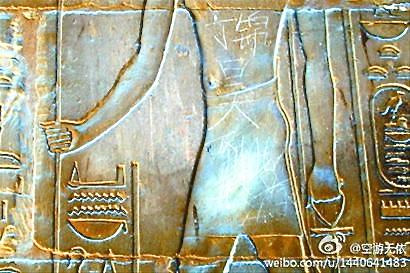A high-profile official publication recently noted that almost half of all civil servants give the green light to the idea of a “naked official,” that is, a cadre who moves his spouse, children and assets abroad.
The affirmative vote was reported in the recent Blue Book on the rule of law in China published by the legal branch of the Chinese Academy of Social Sciences on Feb. 20.
It revealed that most officials believe that their spouses and children “should be able to have” permanent residence or citizenship in foreign countries. Among the interviewees, nearly 75 percent of higher-ranking officials who are above the level of departmental head agree with the “naked official” principle, which has been allowed to be discussed in the Chinese official media since about 2008.
Click this tag to read The Epoch Times’ collection of articles on the Chinese Regime in Crisis. Intra-CCP politics are a challenge to make sense of, even for veteran China watchers. Here we attempt to provide readers with the necessary context to understand the situation.
But the idea that one can flee at a moment’s notice may be an enabler for corruption.
On July 28, 2010, Dong Yuejin, the former assistant to general manager of China International Telecommunication Construction Corporation, was on trial for colluding in the embezzlement of 580 million yuan (approximately US$91 million) and accepting bribe of 1.57 million yuan (approximately US$247,244). Before Dong was caught, his wife and son had already been moved to the U.S., along with their assets. Dong is a “naked” official whose amount embezzled--among those officials caught--set a record in Beijing.
The Blue Book points out that although not all “naked” officials are corrupt, they are at “high risk” of corruption.
Previously, media reports on the cases of corrupt “naked” officials were common. The high profile cases attracted social attention and debate. The cases of former director of the Zhejiang Provincial Department of Construction, former Party Secretary of Yunnan province Gao Yan, former Director of Department of Communications of Guizhou Province Lu Wanli, former director of Administration Bureau for Industry and Commerce of Guangdong province Zhou Jinhuo, are among the many examples. All of the officials involved were at the provincial level, and wielded some clout.
An article by Chinese writer Jia Jia, published in the Southern Metropolis Daily on Feb. 22, said that the majority of the “naked” officials reported by the media before were high-ranking since they had the money and power to buy property overseas for their family, and to send their children to study abroad in Western countries.
However, in recent years, officials’ “nakedness” has been spreading to lower ranks, such as division and section chiefs.
Jia Jia elaborates on the benefits of “nakedness” for the official: it makes one more difficult to be caught in a political struggle or be attacked by political enemies, because of the flight risk, and it means that if Party rule weakens and China faces major social changes, the official has an easy way out.
According to Jia Jia, It also means that while these officials appear powerful, they have no real sense of security in China. And with three quarters of the cadres surveyed approving of the “naked” official idea, Jia Jia says that this sense of insecurity has permeated all ranks.
Read the original Chinese article.
chinareport@epochtimes.com



